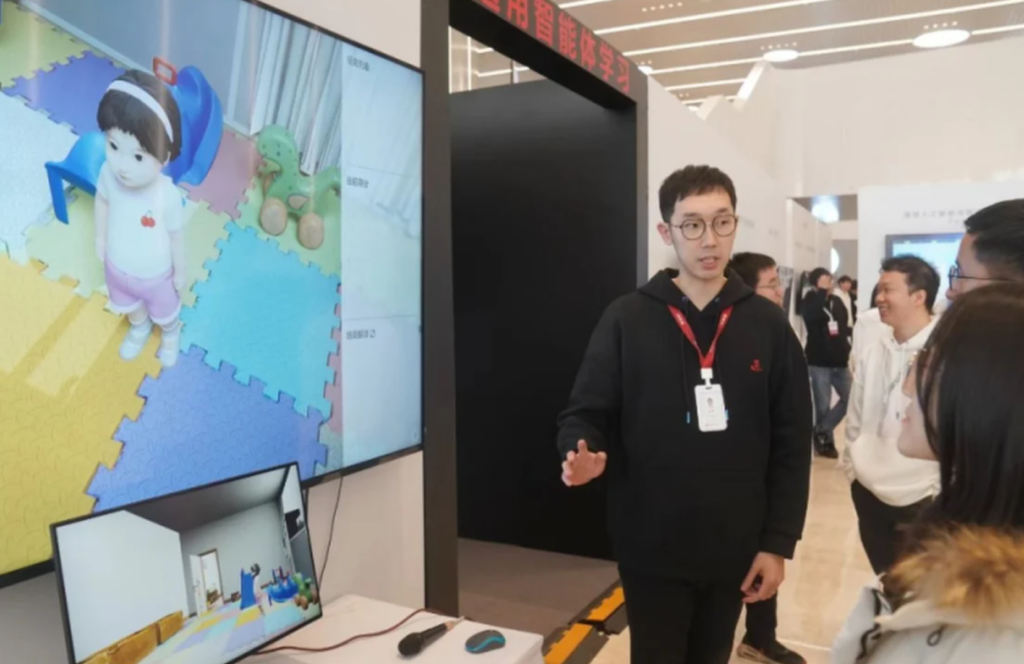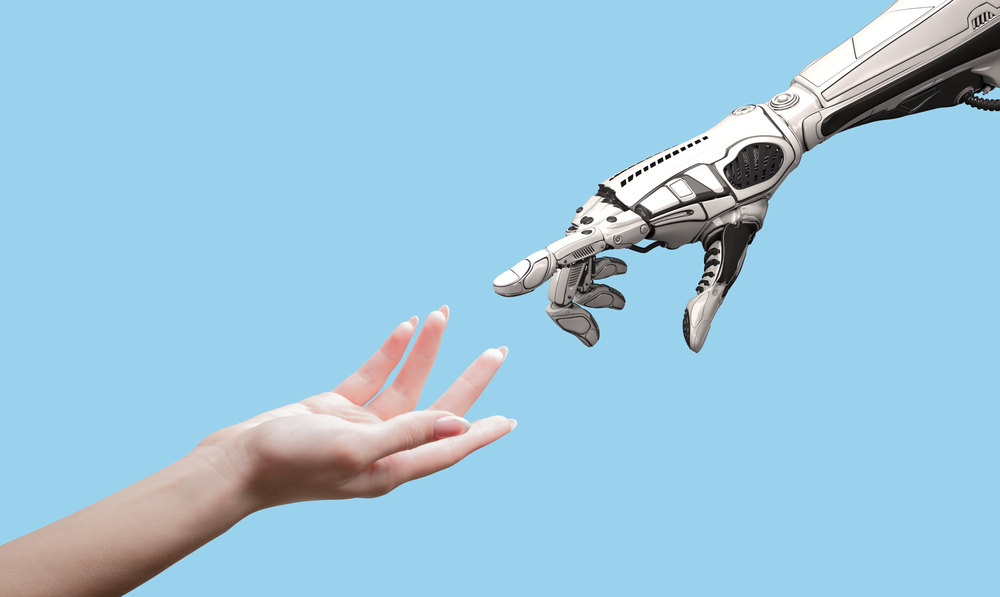The Frontiers of General Artificial Intelligence Technology Exhibition in Beijing unveiled Tong Tong, a robot toddler.
Developed by the Beijing Institute for General Artificial Intelligence (BIGAI), Tong Tong, dubbed “Little Girl,” is an interesting AI-powered robotic agent.
As you can see from the exhibition below, this isn’t a physical robot but a virtual one that exists inside a simulation space.

During the exhibition, visitors witnessed Tong Tong’s ability to adapt and respond to her environment. For instance, she would autonomously correct a crooked picture frame or clean up spills, demonstrating her capability to interpret and act on human intentions without direct assistance.
Tong Tong stands out from conventional AI models because she can self-assign tasks, engage in autonomous learning, and exhibit a range of emotions.
According to a BIGAI video via the South China Morning Post, “Tong Tong possesses a mind and strives to understand the common sense taught by humans. She discerns right from wrong, expresses her attitudes in various situations, and has the power to shape the future.”
Her abilities and behaviors mirror those of a child between three and four years old, continuously evolving through interaction and exploration.
AI-powered robots have become an exceptionally diverse category in their own right, but a researcher highlighted that a core aspect of general intelligence in AI includes “physical and social common sense akin to humans,” enabling the AI to not only complete a vast array of tasks but also to define new ones autonomously – something Tong Tong delivers, albeit virtually.
China has ambitious plans to create thousands of powerful autonomous robots by 2025, which they say will be more disruptive than the internet or smartphones.
Zhu Songchun, the director of BIGAI, explained the significance of creating AI entities that “can comprehend the real world and possess a wide range of skills.”
Zhu, who left a professorship at UCLA to found BIGAI, is a renowned scholar in AI. His work spans general artificial intelligence (AGI), computer vision (CV), and autonomous robots. His accolades include the ONR Young Investigator Award and the Marr Prize from the International Conference on Computer Vision.
The exhibition also introduced the Tong Test, an innovative AI testing platform Zhu developed.
This test addresses the limitations of traditional AI assessments by evaluating an AI’s capabilities across five dimensions: vision, language, cognition, emotion, and learning. It also integrates a comprehensive value system.
Zhu explained the significance of the Tong Test, stating, “For general AI to integrate seamlessly into human environments, it must learn and execute tasks in complex settings, driven by values and an understanding of causality. This is why we proposed the Tong Test, a new direction for testing general AI, focusing on practical abilities and values.”
He further emphasized their research in guiding robotic AI applications toward a more effective and safe integration with our natural environments.





